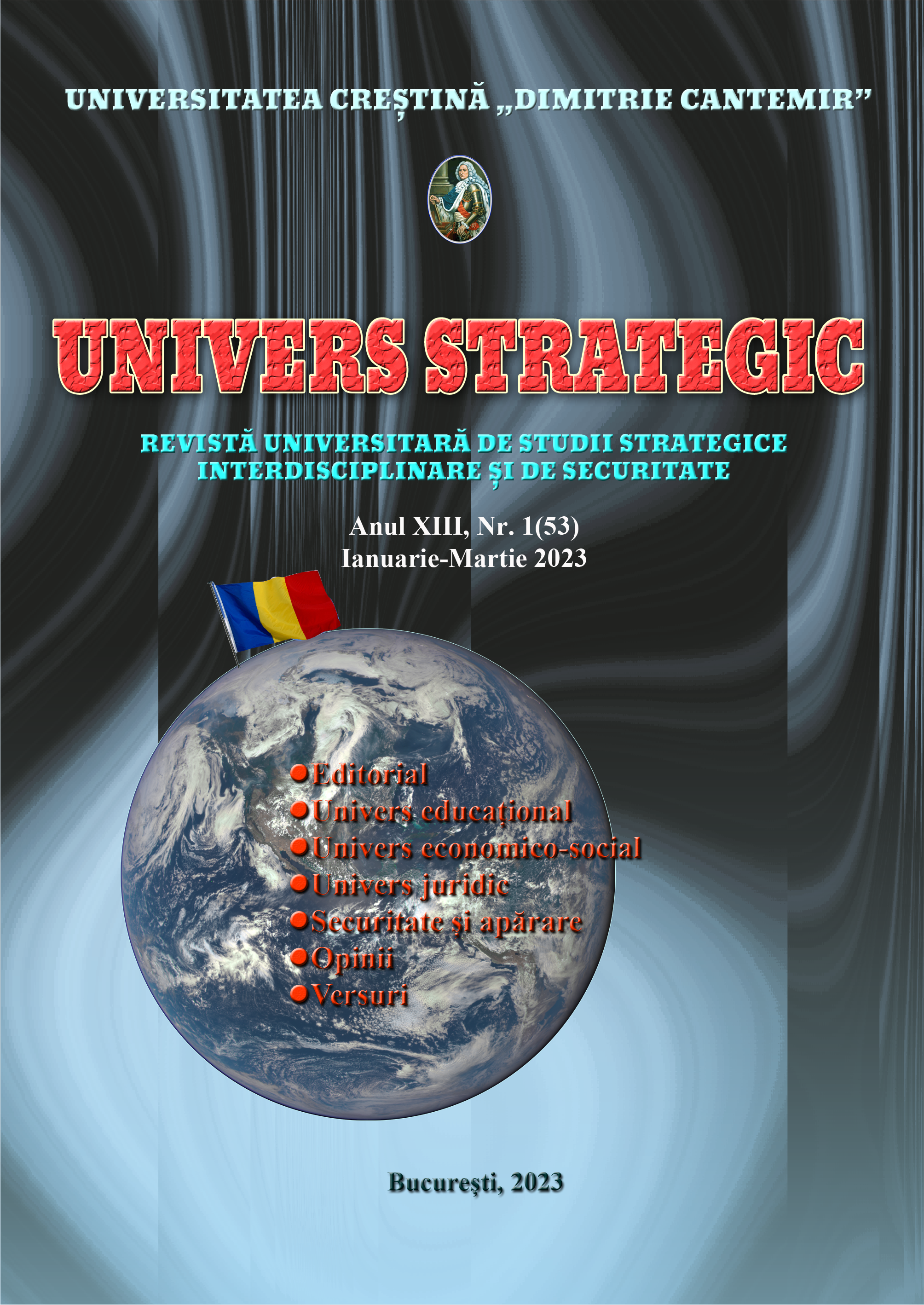IMERSIUNEA ÎN DOMENIUL DREPTULUI DE PROPRIETATE PRIVATĂ RAPORTAT LA CARACTERUL DE UTILITATE PUBLICĂ AL EXPROPRIERII
EXAMINATION OF THE PRIVATE PROPERTY RIGHT IN RELATION TO THE PUBLIC INTEREST NATURE OF EXPROPRIATION
Author(s): Ana_maria RotărescuSubject(s): Human Rights and Humanitarian Law, Public Law, Law on Economics, Administrative Law
Published by: Universitatea Crestina "Dimitrie Cantemir"
Keywords: right to private property; expropriation; public utility; timeliness; lawfulness; private interest; public interest; administrative act; fair and prior compensation; ICCJ decisions;
Summary/Abstract: The right to private property is the right that grants the owner the possession and the right to use and dispose of the owned property. This right is protected by the Constitution of Romania, being established that the only exception is the expropriation for public interest, provided that a fair and prior compensation is granted.Expropriation is regulated at national level by the provisions of Law no. 33/1994, which constitutes the ordinary law in this respect, as well as by the provisions of Law no. 255/2010, and the provisions of Decision no. 53/19.01.2011 approving the Implementing Rules of Law no. 255/2010, published in the Official Gazette no. 84/01.02.2011. The above-mentioned provisions are supplemented by the provisions of Law No 554/2004, published in the Official Gazette No 1154/07.12.2004.ECHR case law analyses the possible violations of Article 1 of the Additional Protocol to the European Convention on Human Rights, in relation to the margin of appreciation granted to the national authorities, an aspect which also gives rise to various interpretations regarding the flexible notion of “public interest” in relation to various factors.Under the current national legislation, the timely nature is left to the discretion of the expropriator, the court of law considering only the lawfulness of the acts drawn up in the expropriation procedure, namely the lawfulness of the expropriation.The concept of “public interest” is not defined by Law No 33/1994. Article 5 of Law 33/1994 lists the works in relation to which a public interest may be declared, while Law No 255/2010 lists, in Article 2, the works declared as being of public interest.The expropriation for reasons of public interest cannot be dissociated from the provisions of the law on administrative disputes.The expropriation procedure comprises four administrative phases, as follows: the approval of the technical-economic indicators, the deposit of the individual amount representing in fact the compensation, the publication of the list of the owners of properties, and the transfer of ownership, the last phase being the completion of the expropriation formalities.During the expropriation procedure, according to the provisions of Law 554/2004, the expropriated owner may seize the competent court requesting either the annulment of the administrative acts, after going through the preliminary procedure, or the optional suspension of the enforcement of the administrative acts issued by the expropriator.In addition, provided that a fair and prior compensation is granted, the expropriated owners may challenge the individual compensation decision under the terms of Article 22 of Law 255/2010.However, there are also situations in which the Commission for the Verification of Rights of Ownership does not comply with its obligations provided for expressly, thus failing to comply with the mandatory legal time limits of such expropriation proceedings, which are accelerated by nature, and does not issue the individual decision on granting compensation.In such situations, the expropriation proceedings continue, given that the expropriation decision is enforceable, the amounts estimated by the expropriator as compensation have been deposited, and the transfer of ownership has already taken place. Under these circumstances, what are the actions available to expropriated owners? Can they go to court if the expropriator has not issued an individual decision? What is the outcome of such a request submitted to the court of law?The High Court of Cassation and Justice (ICCJ), by Decision 14/2019, published in the Official Gazette, Part I, no. 476/11.06.2019, regarding the examination of the appeal in the interest of the law, concerning the appeals filed by the expropriated owners against the amount of compensation initially estimated by the expropriator in the administrative phase and the request for a final determination of the compensation by the court even before the issuance of the individual decision, has established that such requests cannot be rejected as inadmissible, nor as premature in relation to compliance with the provisions of Article 1 of the First Additional Protocol to the ECHR and Article 6(1) of the Convention.Accordingly, the special rules of Law 255/2010 must be enacted and interpreted in the letter and spirit of constitutional standards, with a fair and prior compensation, with reference to the legislation and case law of the ECHR, as well as the binding decisions rendered by the ICCJ.
Journal: Revista Univers Strategic
- Issue Year: XIV/2023
- Issue No: 53
- Page Range: 254-273
- Page Count: 20
- Language: Romanian

